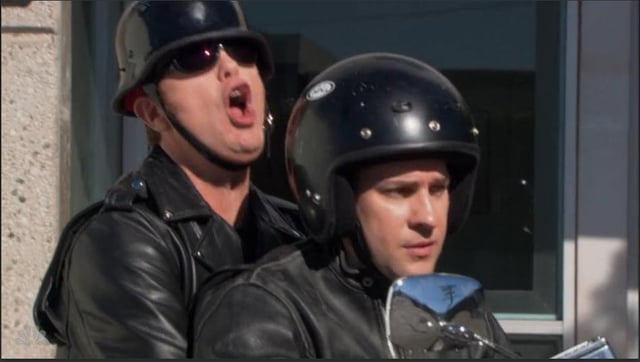
The annals of television are vast, filled with moments that burn bright, only to fade into the collective unconscious, eclipsed by grander narratives or more sensational plot twists. Among these unsung heroes of the small screen are the "cold opens"—those fleeting, pre-credit sequences designed to hook, disorient, or amuse before the main event truly begins. We remember the iconic series, the defining episodes, the shocking finales. But sometimes, nestled in the very first minutes of a show's premiere, or a particularly strong episode, lies a cold open so perfectly executed, so quintessential to the show's DNA, that its quiet power is often overlooked, overshadowed by the very greatness it helped to build. "Wait, you forgot this classic cold open happened," we might exclaim, pulling a buried gem from the depths of memory.
Consider the eerie, almost primal simplicity of Lost's opening scene. Before the mysteries, the polar bears, the numbers, the flash-forwards and flashbacks, there is just Jack Shephard. His eye opens, disoriented, bewildered, staring at a bamboo ceiling. He jolts awake, surrounded by the chaotic aftermath of a plane crash. There's no dialogue, just the guttural sounds of the jungle, the distant screams, the wreckage. This cold open is forgotten not because it was bad, but because the show that followed became so monumentally complex, so laden with mythological weight, that the raw, immersive terror of its beginning is often lost in the labyrinth. Yet, it perfectly encapsulates Lost's core appeal: immediate, visceral disorientation, a sense of having been dropped into an unknowable chaos, and the primal instinct to survive. It asked "What happened?" before the characters could even articulate it, setting the stage for six seasons of unanswered questions and relentless pursuit of meaning.
Then there’s the darkly comedic and utterly bizarre introduction to Breaking Bad. Walter White, in a gas mask and tighty-whities, swerves a dilapidated RV through the New Mexico desert, only to crash it, step out, and film a desperate, tearful confession. All while sirens blare in the distance and a pair of trousers inexplicably floats through the sky. This cold open is a masterclass in tone-setting. It’s forgotten in the grand scheme of Heisenberg’s empire, the meth-fueled violence, and the escalating moral compromises. But it’s crucial. It introduces the absurdity, the black humor, the sheer desperation that would define Walt's journey. It’s a snapshot of his ultimate undoing before he even truly begins, a stark, surreal foreshadowing of the chaos that will follow. It plants the seed of "how did he get there?" right from the start, a question that propels the entire series.
In a different vein, the very first moments of The Newsroom deliver a cold open of blistering, unforgettable impact, yet one often overshadowed by the show's later Sorkin-isms and intricate ethical debates. News anchor Will McAvoy, typically affable and non-committal, is asked during a public forum, "What makes America the greatest country in the world?" After typical platitudes from his fellow panelists, he snaps. In a searing, no-holds-barred monologue, he eviscerates the notion, detailing America’s decline in literacy, infrastructure, social mobility, and more. It’s a theatrical explosion, a character’s dam breaking, a mission statement for the entire show. This cold open is forgotten not because it lacked punch, but perhaps because its grandiosity became the show's default mode. Yet, it was the seismic shock that launched the entire series, perfectly introducing Will's dormant idealism and the series' ambition to challenge conventional wisdom, demanding that journalism – and America itself – do better.
Finally, consider Succession's introduction to the Roy family dynasty. It doesn't begin with a grand corporate maneuver or a lavish party. It begins with Logan Roy, patriarch and media titan, shuffling through his bedroom in the dead of night, disoriented, relieving himself on the carpet, before collapsing. The cold open cuts to his children scrambling, reacting to the news, their concern inextricably intertwined with their immediate calculations of power. It’s forgotten amidst the endless power struggles, the venomous insults, and the operatic betrayals that follow. But this opening is the perfect distillation of the show's central premise: the immense wealth and power, the fragility of the emperor, and the instant, predatory scramble for the throne that defines the Roy children. It’s messy, undignified, and immediately sets the stage for a family dynamic driven by the pursuit of power, even at the cost of genuine human connection.
These forgotten cold opens are more than just clever hooks; they are the foundational stones upon which entire series are built. They are the character introductions, the thematic declarations, the tone-setters that, in retrospect, provide crucial context for everything that follows. They are classic not just for their execution, but for their understated brilliance in laying the groundwork without giving too much away. So, the next time you embark on a rewatch, or even think about a beloved show, pause for a moment. Go back to the very beginning. You might just remember that classic cold open you forgot, and in doing so, rediscover the subtle genius that started it all.